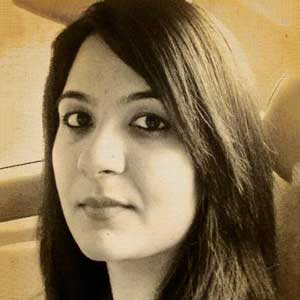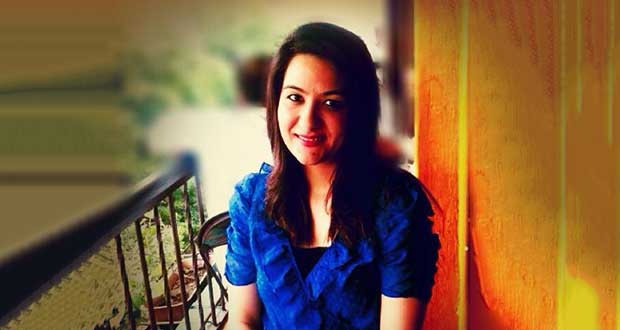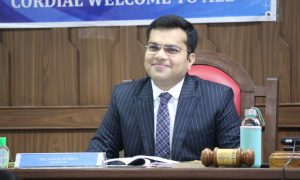Divya Mehta graduated from Symbiosis Law School, Pune, in 2008. Soon after graduating she joined Dua Associates as a Trademark Attorney and worked their for about three years, thereafter she left Dua to work at Lall, Lahiri & Salhotra. After working at these two firms she had the opportunity to work as an in-house counsel at Genpact and General Electric in their trademarks and IP department.
She quit her mainstream career in law and joined LegallyIndia as their Legal Recruitment Head. Currently she is a Senior Consultant at Legal League Consulting and is also a certified Life Coach.
In this interview Divya helps us to realise the answers of some intriguing questions about legal hires and recruitments.
How would you introduce yourself? Could you please share a little bit of what motivated you to pursue law as a career?
I have always been intrigued by human behaviour and trying to analyze someone’s thoughts is what drove me to study law. I found it exciting, challenging and was adamant from the age of eleven to pursue law as a profession. Although I didn’t quite zero down on a particular field of law back then, I was willing to take the risk and knew that I would eventually figure it out.
Please tell us a little about your law school days at Symbiosis Law School?
I wasn’t too enthusiastic a student, I rather took a back-seat when I went to law school and a large part of my law school days went in introspection and self-reflection. A part of me felt lost and unsure, that is when I realized, the only way to decide what I really want is to explore different fields of the legal profession. I used to spend a lot of time in Delhi interning in various law firms and independent practitioners, in order to gain clarity on what really interests me.
How were your internship experiences? How do you say interns can get positive feedback in the limited time they have?
All my internship experiences were diverse and varied from litigation to arbitration, corporate laws, intellectual property, human rights, banking laws, matrimonial laws to infrastructure and so on. My mind suddenly opened and I realized the difference between text books and the practical world of law and sure enough, there was a huge difference! I interned in some of the top firms like AZB & Partners, Luthra & Luthra Law Offices, with some Senior Advocates in the Supreme Court, High Court and made appearances in the lower courts, as well as an NGO – it was all very exciting!
My experience as an intern taught me that good work never goes unnoticed. As interns we may feel we cannot add value to a firm or an organisation, however, there is always a thirst for good talent and hard-work. The best way to get a positive feedback is to be self-motivated and display enthusiasm towards the work you are given, and if you feel you do not have enough work, don’t feel shy to ask for work, also never say NO to work. The right attitude helps you go places.
 What were the biggest challenges in the first year of your graduation? How did you deal with them?
What were the biggest challenges in the first year of your graduation? How did you deal with them?
It was surely challenging and intimidating at the same time to take a decision on either taking up a job or pursuing higher studies. I graduated in the year 2008 and was keen on going to London for an LL.M, however, that was the time the recession impacted the U.K and it wasn’t the best decision to make as there were a serious dearth of jobs back then and I wasn’t sure if it was the right thing to do, so I dropped the idea and instead took up my first job in 2008 as a Trademark Associate with Dua Associates in Delhi.
You worked for a significant amount of time as a trademark attorney. How did you develop interest in the field of intellectual property law?
I worked as a Trademark attorney for 3 years + in firms like Dua Associates, which was a multi-disciplinary law firm, and then moved to a boutique IP firm, Lall Lahiri & Salhotra which was more niche and specialised. I also got an opportunity to briefly work in-house at Genpact and handled the Trademarks of GE world-wide. It was a great learning experience for me and I got exposure on various facets of Trademarks.
Tell us about the shift from being a Law Firm Associate to an In-house counsel. How different were the two experiences?
A law firm is very different in culture and work per se from working in-house. Law firms are more focussed on the ground work and are in constant touch with the law itself. The difference between working in a law firm and working in-house is probably the same as “doing” and “getting the work done” i.e. actual work and supervision of work in most cases. However, there are companies that get a majority of their ground work done in-house. Law firms fall short in terms of designation, salary, and structure etc. However, working in-house ensures transparency and a fixed methodology and constitution, therefore, brings about job stability and predictability in long-term working.
Subsequently, you turned into a legal recruiter and headed legal recruitment at Legally India. How did you decide to make this transition from being a lawyer?
I believe our profession and the kind of work we do, should resonate with our personality and our passion. I am a people’s person, social, outgoing and love interacting with different people. When I was offered the role of developing the legal recruitment business of Legally India’s jobs portal, Legally Jobs, it immediately excited me and I felt it was the right move for me to make.
Although I was told by many well-wishers to be cautious about my frequent career moves and I was warned enough that this risk could leave a black spot on my resume, however, a deeper knowing or intuition told me to go ahead with this and it was probably the best decision I have made for myself, in retrospect.
Having worked in the legal recruitment industry what are the challenges you have faced?
In India, legal recruitment is still a niche concept. Barring a few well-known specialised legal recruitment consultancies, our minds are still not fully open to the need for specialised legal recruitment professionals in India. A law firm or a legal department are nothing without it’s resource. In order to comprehend the requirement of human resource for law firms and corporates, there is a greater technical understanding and research that is needed, which is why the law degree is extremely useful to work in the legal headhunting industry. However, the value of a specialised legal recruitment consultant is appreciated more overseas and unfortunately, has not fully sunk in with the mind-set of lawyers in India, although, there is scope for it to change in the future.
Would you say an LL.M from a foreign university would increase the probability of getting absorbed in the top law firms?
I strongly recommend an LL.M should be pursued only if the line of work you choose eventually, should commensurate with your specialisation, although a degree from a foreign university definitely looks fancy. However, to get into a top tier law firm, your LL.B grades and law school ranking matters the most.
What would you say contributes to the high attrition rate of many top law firms?
Long working hours and the lack of reward and appreciation is how of a lot of lawyers feel. When you sign up to be a lawyer, late hours is also what you sign up for. The concern is the lack of empathy your boss may have towards your hard work which can be a huge de-motivating factor and is one of the major causes for high attrition rate in many top law firms. After realising that burning the midnight oil did not really get them where they want to be, the next ideal move which is preferred is usually an in-house job.
How do you balance your time as a Senior Consultant and a Certified Life Coach?
My primary work is a legal recruitment consultant. However, life coaching is more of a hobby for the time being, which I pursue during my spare time on weekends mostly. I love meeting new people from different countries and understanding the complexities of human nature.
As a concluding message, what would be your suggestions to law students?
Thank you Ramanuj and Donnie for reaching out to me and making effort to set up this interview and I thank all your readers for taking out time to read this interview.
I would like to give one small message to all your readers and all law students especially – it’s okay to be confused! Do not let uncertainties cause hindrance to your goals and career aspirations. Explore as much as you can which you’re in law school whether it is interning in different fields of law, or participating in extra-curricular activities such as moot courts or doing something completely different than what you imagined yourself ever doing, even if it does not pertain to law. That is the only way you will get closer to understanding yourself better. Once you know yourself, the path will automatically be clear. Wishing all the budding lawyers a fantastic and bright future ahead!
























